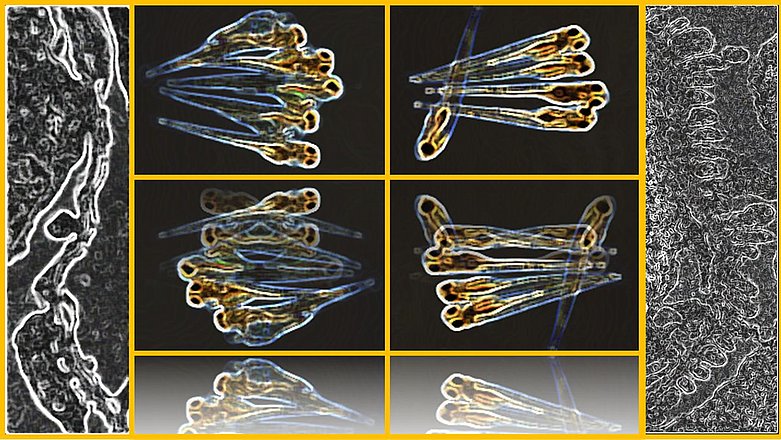Our laboratory focuses on mechanisms of signal transduction in glomerular epithelial cells (podocytes). Between their interdigitating foot processes, podocytes form a highly complex cell-cell contact called the slit diaphragm. Together with capillary endothelial cells and the glomerular basement membrane, it creates an effective barrier for high molecular-weight substances in the blood. The slit-diaphragm is an electron-dense, zipper-like structure composed of different transmembrane proteins, such as Nephrin, Neph1, P-Cadherin, and FAT. These are linked to the actin cytoskeleton via Podocin and CD2AP. The molecular makeup of the slit-diaphragm is a highly dynamic research field, leading to the identification of new components on a regular basis. Many of these proteins play a key role in maintaining the integrity of this highly specialized cell structure. Genetic ablation of slit-diaphragm components in animal models – referred to as a “knock-out” – often leads to severe proteinuria and glomerular sclerosis, resulting in end-stage renal disease.
We work on identifying small molecules and peptides that directly target the podocyte with the overarching goal of developing novel therapies for podocytopathies, such as FSGS and minimal change disease. To test our candidate compounds in vivo, we use different mouse models as well as a zebrafish model of proteinuria that we have previously established. Besides that, we work on improving the current standard for molecular and cellular urine diagnostics. Apart from the clinical evaluation of urine sediment, we utilize specific methods to detect glomerular epithelial cells in urine and analyze the expression of different marker molecules and micro RNAS. Another interest of our group is the role of environmental factors in the development of kidney disease. We are currently investigating the effects of microplastic accumulation on renal function in different animal models. In summary, our group aims to identify the underlying mechanisms of glomerular disease and to subsequently develop podocyte-targeted therapies as novel treatment options for these conditions.

Collaborations
- Christoph Englert, FLI-Leibniz Institute, Jena, Germany
- Vesna Garovic, Mayo-Clinic, Rochester, USA
- Dirk Hentschel, Harvard Medical School, Boston, USA
- Tobias Huber, Medical Center Hamburg-Eppendorf, Germany
- Jochen Reiser, Rush University Chicago, USA
- Katalin Susztak, University of Pennsylvania, Philadelphia, USA
- Ava Udvadia, University of Wisconsin, USA
- diverse klinische und grundlagenwissenschaftliche Arbeitsgruppen der Medizinischen Hochschule Hannover




